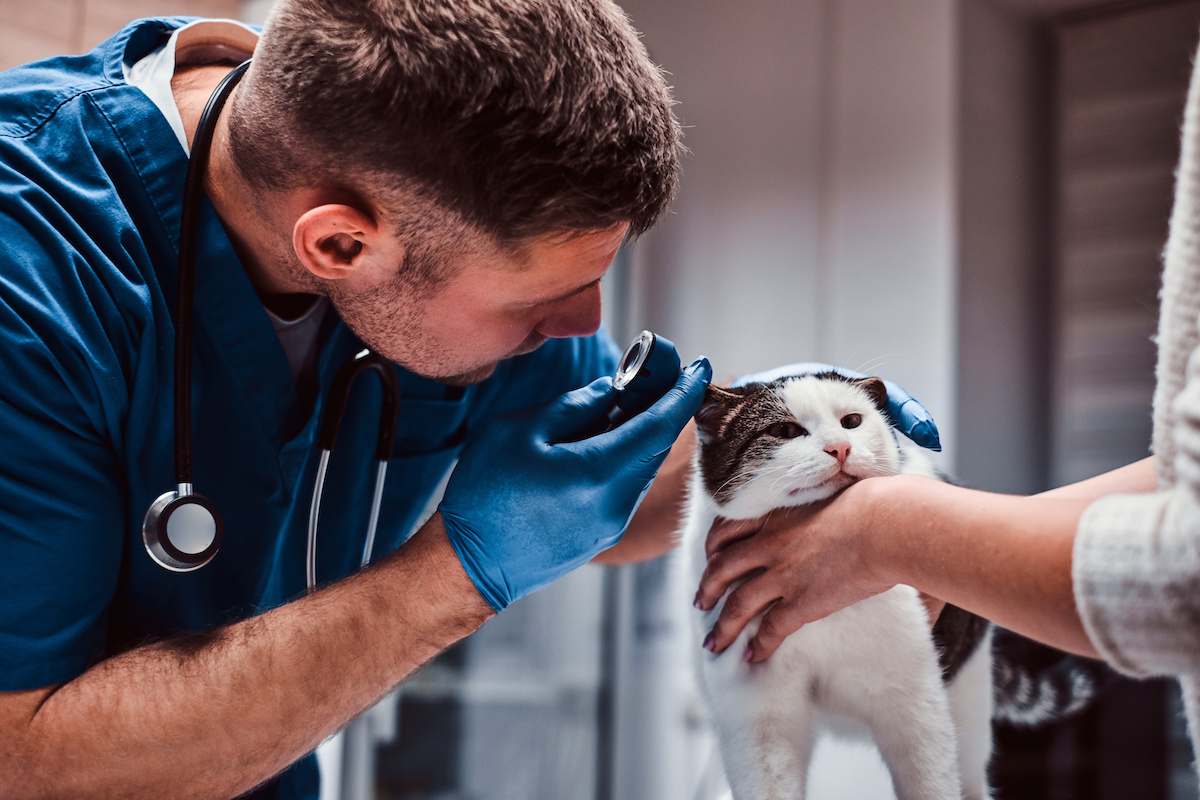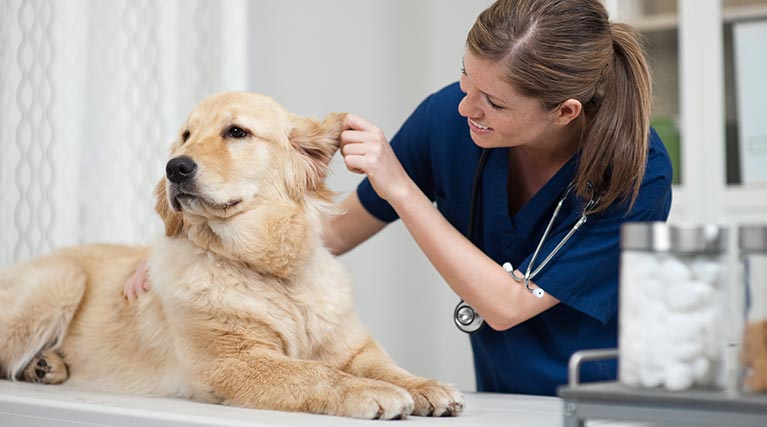Professional Tips for Animal Nutrition From a Vet
Recognizing the dietary requirements of pets is crucial for their total health and wellness and durability. Veterinarians advise a balanced diet that satisfies private factors such as age, type, and task level. Yet, with the wide range of pet food choices available, pet proprietors typically find themselves browsing a landscape rife with false information and myths. As we check out essential ideas from veterinary specialists, it becomes obvious that appropriate nourishment is not simply concerning what is fed however entails a deeper understanding of each pet's special needs. What crucial insights could change your approach to pet dog nutrition?
Comprehending Nutritional Needs
Comprehending the dietary demands of animals is basic to ensuring their overall health and well-being. Much like humans, pets need a well balanced diet that supplies essential nutrients, consisting of proteins, fats, minerals, vitamins, and carbohydrates. These nutrients play crucial functions in different bodily functions, such as energy manufacturing, immune response, and cells fixing.
Healthy proteins are essential for development, repair service, and upkeep of body tissues - Vet Greensburg. They are composed of amino acids, some of which are essential and must be gotten from food. Fats give a focused source of energy and are essential for the absorption of fat-soluble vitamins. When they include fiber., carbohydrates offer as a key power source and can support digestion wellness.
Each animal might have unique requirements based on variables such as age, breed, task level, and health and wellness standing. It is vital to seek advice from with a veterinarian to determine the particular dietary demands customized to your family pet's specific needs, guaranteeing they get ideal nourishment throughout their life phases.

Selecting the Right Food
Choosing the suitable food for family pets is an essential facet of fulfilling their dietary demands. It is crucial to think about factors such as age, health and wellness, dimension, and type status when picking a family pet food. Kitties and puppies call for formulas that sustain development and development, while grown-up pets require balanced diet regimens that maintain their wellness. Senior pets might gain from foods created to address age-related concerns, such as joint health and wellness or weight monitoring.
When examining pet dog food choices, seek products that fulfill the Organization of American Feed Control Officials (AAFCO) requirements, which make certain that the food provides balanced and complete nourishment. Ingredients must be top quality, with real meat as the main source of protein. Stay clear of foods with excessive fillers, synthetic ingredients, or byproducts, as these can diminish the general dietary worth.
Consulting with a veterinarian can supply tailored suggestions based upon your pet's particular requirements. In addition, transitioning between foods ought to be done progressively to prevent intestinal trouble. By taking these steps, animal owners can guarantee that they are supplying their hairy companions with the finest possible nutrition for a satisfied and healthy life.
Common Myths About Pet Food
Exposing mistaken beliefs bordering pet food is vital for making certain optimum nourishment for our hairy friends. One common myth is that all grain-free diets transcend for pets. In reality, grains can give crucial nutrients and are not naturally dangerous. A balanced diet can consist of grains, given they are not triggering any type of intolerances or allergic reactions.

Furthermore, numerous family pet owners believe that "costs" or "all-natural" tags ensure better. These terms are frequently unregulated and do not necessarily show superior dietary worth. It is essential to scrutinize active ingredient checklists and dietary accounts instead.
Special Considerations for Various Breeds
When it concerns pet nutrition, unique factors to consider should be taken right into account for various breeds, as each type can have special dietary requirements and sensitivities. Large breeds such as Great Danes and Saint Bernards are susceptible to musculoskeletal problems and may benefit from diet regimens developed to sustain joint health, usually featuring ingredients like glucosamine and omega fatty acids. On the other hand, tiny breeds like Chihuahuas might need greater calorie my latest blog post densities to satisfy their energy levels, demanding formulations that are abundant in nutrients but lower wholesale.
Additionally, certain breeds might be predisposed to particular wellness concerns, such as food allergic reactions or level of sensitivities. Breeds like Labrador Retrievers may battle with excessive weight, requiring cautious section control and a balanced diet plan to keep a healthy weight. On the other hand, types such as Dachshunds might be more vulnerable to spine concerns, motivating a need for diets that promote spine wellness and weight monitoring.
Ultimately, comprehending these breed-specific dietary demands is essential for animal proprietors. Consulting with a vet can aid in picking one of the most proper diet regimen customized to an individual animal's breed, age, and health and wellness standing, guaranteeing optimum nourishment and well-being.
Significance of Regular Veterinary Check-Ups
Understanding the special nutritional requirements of various breeds is just one element of liable family pet possession; routine veterinary examinations play a vital duty in maintaining overall health. These examinations are important for very early useful reference detection of wellness issues, ensuring that any kind of prospective problems are resolved prior to they become major. Regular brows through permit veterinarians to check your family pet's weight, dental wellness, and crucial indications, which are crucial indications of general wellness.
Additionally, routine exams allow vets to supply tailored dietary advice based upon your animal's specific health and wellness standing - Vet Mckinney. As pets age, their dietary needs may transform, and modifications might be required to avoid weight problems or nutrient deficiencies. Preventative care, consisting of inoculations and parasite control, is also a basic component of these sees, protecting your family pet from various illness
Along with health examinations, these consultations offer an exceptional possibility for pet owners to review behavioral modifications or problems about their animal's consuming behaviors. By prioritizing routine vet check-ups, animal proprietors can make certain a longer, healthier life for their fuzzy friends, inevitably enhancing their high quality of life.
Verdict
Finally, making sure optimum pet dog nutrition requires an extensive understanding of private nutritional demands, appropriate food choice, and understanding of widespread misconceptions. Unique factors to consider for numerous types have to be made up, and normal veterinary check-ups play a vital role in keeping an eye on health and wellness and nutritional modifications. Abiding by AAFCO criteria and seeking advice from vets before making nutritional adjustments will certainly boost the health of pets, ultimately adding to their longevity and quality of life.
With the multitude of pet dog food alternatives readily available, pet proprietors usually locate themselves browsing a landscape swarming with misinformation and myths. Each animal may have unique needs based on variables such as age, type, task degree, and health and wellness condition. It is important to consider variables such as age, type, dimension, and health and wellness status when picking a pet food. Elderly pet dogs might benefit from foods developed to deal with age-related issues, such as joint link wellness or weight administration.
Comprehending the unique nutritional requirements of different types is just one element of responsible pet possession; routine vet examinations play a vital function in maintaining total health and wellness.